Breaking Freem From Workaholics Addiction: Unraveling the Traps of Workaholism for a Conscious and Balanced Life
EPISODE 152
It’s time for another 1001 Ways of Being to Let Go of as it doesn’t serve you in the long run. This week it’s my 2nd 1001 Ways of Being to Let Go of episode called: Breaking Free From Workaholics Addiction: Top 5 Signs of Workaholism and Unraveling the Traps of Workaholism for a Conscious and Balanced Life
In this episode, I introduce you to the “Energy” of WORKAHOLISM and the following topics:
The Consciousness Calibrations and “energy field” of workaholism.
- Defining the signs of workaholism and a workaholics addiction.
- The underlying feelings and ways of being at this low consciousness level.
- Better choices to make in consciousness to realign yourself with a better life
- Understanding the rise in workaholism and some possible contributing factors
- Better ways to align with success
Here’s your “Swell Prize” : Discover How to Let Go of Workaholism and take my email journey into letting go here.
5 Indicators of Workaholism You Should Be Aware Of
In today’s high-speed, high-pressure world, the lines between work and personal life can often blur. With the rise of remote work and digital connectivity, it feels like we’re always “on,” and the pressure to do more, achieve more, and be more is persistent. But when does hard work cross the line to a workaholics addiction? While a strong work ethic is undoubtedly commendable, workaholism can lead to significant physical and mental health issues. This blog post delves into the concept of workaholism, explores its negative impacts, and identifies five key signs to be aware of.
Introduction
What is Workaholism?
The term “workaholism” was first coined in 1971 by American psychologist Wayne E. Oates in his book Confessions of a Workaholic: The Facts About Work Addiction. It refers to the compulsion or the uncontrollable need to work incessantly. Contrary to popular belief, workaholics are not just highly engaged individuals who love their jobs. They feel internal pressures to work, often out of obligation or guilt, rather than enjoyment or fulfillment.
According to ConsciousnessCalibrations.com, workaholism – a compulsion to work excessively hard and long hours, *calibrates at 170 on Dr. David R. Hawkins’s Map of Consciousness®, indicating its detrimental impact on an individual’s well-being.
Overview of the adverse effects of workaholism
Workaholism can lead to numerous adverse outcomes. Continuous overworking can cause physical health issues, such as fatigue, sleep disorders, and even severe conditions like heart disease. It also takes a toll on mental health, leading to heightened stress levels, anxiety, and depression. Moreover, workaholism can harm personal relationships, as workaholics often neglect their private lives in favor of work. In the long run, this unchecked obsession with work can lead to a decline in overall life satisfaction and happiness.
*170 on the Map of Consciousness® is an impersonal attractor energy in the field of consciousness. It is, by nature, negatively oriented, downward-pulling, and destructive by nature. “Swimming in this pool” of consciousness is detrimental to all aspects of your being, mind-body-spirit.
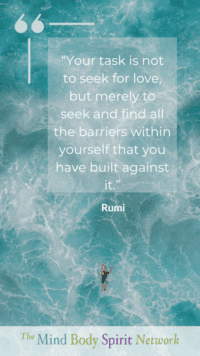 *NOTES ABOUT CALIBRATIONS: Thanks to ConsciousnessCalibrations.com, we have access to the calibrations of the consciousness or authentic power and innate truth in anything that ever was throughout history and that is in the present moment. Numbers throughout this website represent those calibrations that can be determined through consciousness research. Higher consciousness is anything that calibrates at 200 or above up to 1000 on the Map of Consciousness® or the Map of Spiritual Progress. Lower consciousness is anything calibrating below 2oo (0-199).
*NOTES ABOUT CALIBRATIONS: Thanks to ConsciousnessCalibrations.com, we have access to the calibrations of the consciousness or authentic power and innate truth in anything that ever was throughout history and that is in the present moment. Numbers throughout this website represent those calibrations that can be determined through consciousness research. Higher consciousness is anything that calibrates at 200 or above up to 1000 on the Map of Consciousness® or the Map of Spiritual Progress. Lower consciousness is anything calibrating below 2oo (0-199).
Stop guessing. Do the math!
The mission of The Mind Body Spirit Network is to help you raise your level of consciousness on any topic and remove the blocks to love.
Sign #1 of Workaholism: Inability to Turn Off
 Explanation of the inability to turn off thoughts of work
Explanation of the inability to turn off thoughts of work
The first sign of workaholism is the inability to “turn off” or disconnect from work-related thoughts and activities. For workaholics, work is not confined to office hours or the workplace. Instead, it permeates all aspects of their lives. They might find themselves constantly checking emails, making calls, or planning work even during non-work hours. Moreover, they often have difficulty switching off their work mindset and may constantly think about work tasks, deadlines, or problems, even when they should be relaxing or spending time with loved ones.
Discussion of the negative impact on mental and physical health
The constant preoccupation with work can exert immense pressure on mental and physical health. Mentally, it leads to chronic stress and anxiety, potentially resulting in burnout or other mental health disorders over time. Physically, the lack of rest can lead to fatigue, weakened immunity, and other stress-related ailments. Over time, these factors can contribute to serious health complications like heart disease or hypertension. Therefore, setting clear boundaries between work and personal life is crucial to ensure overall well-being.
How can you let go of ongoing thoughts of work?
Become aware that studies and consciousness research have demonstrated that repressed and suppressed emotions fuel these negative thoughts. If you remove the trapped and, in some cases inherited emotions, you can release the energy fueling the thoughts.
For example, the energy field 170 is the same energy as suppressed anger. Release the suppressed anger, you release the “energy” that fuels the workaholic thoughts.
More 170-Level Destructive Energies
I love to use the metaphor of a pool of consciousness. When you are entangled in the consciousness of workaholism, you are swimming in a “170” consciousness pool. You can’t help but attract things in this pool of consciousness. Another sign you are in the energy field of workaholism is behaviors that are destructive and could contribute to this issue.
One of these behaviors is (no wonder now…) over-thinking–“to put too much time into thinking about or analyzing (something) in a way that is more harmful than helpful” –Merriam-webster.com
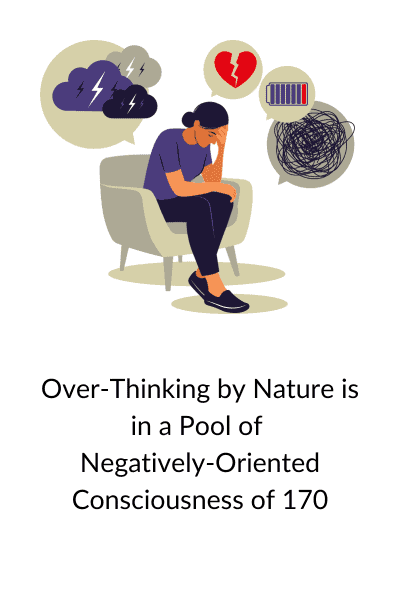 Overthinking is a typical behavior associated with workaholism, and it can have adverse effects on both mental and physical health.
Overthinking is a typical behavior associated with workaholism, and it can have adverse effects on both mental and physical health.
From a mental health perspective, over-thinking can lead to heightened stress levels, anxiety, and even depression. Constantly analyzing work-related situations or obsessing over potential problems can create a continuous state of worry and rumination. This can impact decision-making abilities and lead to feelings of overwhelm and burnout.
Physically, overthinking can contribute to increased cortisol levels, the stress hormone. Prolonged exposure to high cortisol levels can harm the body, such as weakened immune system, disrupted sleep patterns, and digestive issues. It can also contribute to the development of chronic conditions like heart disease and hypertension.
Additionally, over-thinking can interfere with personal relationships and overall life satisfaction. When constantly preoccupied with work-related thoughts, someone may neglect to spend quality time with loved ones or pursue hobbies and activities that bring them joy. This imbalance can strain relationships and lead to feelings of isolation and unhappiness.
It’s essential to recognize the negative impact of over-thinking and take steps to manage it. This could include practicing mindfulness techniques, setting boundaries between work and personal life, seeking support from loved ones or professionals, and engaging in activities that promote relaxation and stress reduction.
Get to the Deep-Rooted Contributors to Your Workaholic Propensities
Free Yourself to Be Yourself! Release trapped emotions to release the “energy” of workaholism in your energy field, improve your life, transform your emotional well-being, and experience greater happiness and health.
Suppose you enjoyed my interview with Linda Armstrong. In that case, I highly recommend her and her ability to get at and release trapped, inherited, and hidden determinants of mental, emotional, physical, and relational issues in your life.
Sign #2 of Workaholism: Neglecting Personal Life
Explanation of neglecting personal relationships
Workaholics often prioritize work over their personal lives, leading to the second sign – neglecting personal relationships. They may miss out on family events, social gatherings, or quality time with their loved ones because they’re either too busy working or too preoccupied with work-related thoughts. They might also find it challenging to engage in non-work conversations or activities, which can lead to feelings of isolation or estrangement from their friends and family.
Discussion of the consequences of prioritizing work over personal life
Prioritizing work over personal life can have profound consequences. On a personal level, it can lead to strained relationships and a sense of isolation. It can also result in a lack of work-life balance, which is crucial for overall well-being and satisfaction. On a broader level, neglecting personal life in favor of work can lead to decreased productivity and increased risk of burnout in the long run. Hence, maintaining a healthy balance between work and personal life is paramount for sustaining both professional success and personal happiness.
More 170-Level Destructive Energies
Another sign you are in the energy field of workaholism is destructive behaviors that could contribute to degrading relationships.
One of these behaviors includes overtalking-to talk too much or too long about (something) —merriam-webster.com
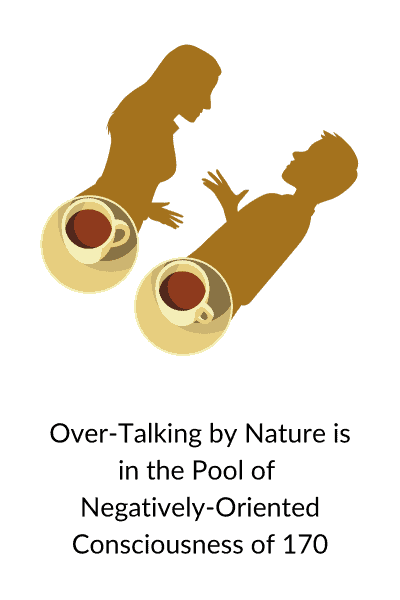 Over-talking in relationships is negatively oriented because it often means dominating conversations and not allowing the other person to express themselves adequately. It can create a one-sided dynamic where the over-talker constantly seeks attention and validation, without considering the needs and opinions of others.
Over-talking in relationships is negatively oriented because it often means dominating conversations and not allowing the other person to express themselves adequately. It can create a one-sided dynamic where the over-talker constantly seeks attention and validation, without considering the needs and opinions of others.
This can lead to feelings of frustration, resentment, and a breakdown in effective communication within the relationship. Over-talking can also prevent meaningful connections from forming, as it inhibits genuine listening and understanding. Ultimately, it can contribute to a sense of imbalance and disconnection in personal relationships, further reinforcing the negative effects of workaholism.
Sign #3 of Workaholics Addiction: Constant Worry and Stress
Explanation of the constant worry and stress associated with workaholic addiction
Another significant sign of workaholism is constant worry and stress about work. Workaholics often suffer from chronic anxiety about work-related issues, such as deadlines, performance, or workplace dynamics. This relentless worry can keep them on edge, making it difficult to unwind even during downtime. They may also experience guilt or unease when they are not working, further exacerbating their stress levels.
Discussion of the impact on mental and physical health
Chronic stress and worry can have severe implications for both mental and physical health. Mentally, it can lead to conditions like anxiety disorders and depression. It can also affect cognitive functions, such as concentration and memory. Physically, chronic stress can lead to various symptoms like headaches, insomnia, digestive problems, and even cardiovascular diseases. Therefore, managing work-related stress effectively is a vital aspect of preventing workaholism and maintaining overall health.
More 170-Level Destructive Energies
Another example in the energy field of 170 is the energy as feeling over-responsible or taking responsibility for things you aren’t really responsible for. Taking on something you aren’t accountable for invites anxiety and stress. It’s not a conscious intention. It’s an unconscious attraction to this destructive impersonal field of consciousness magnetizing this to you.
Release the “energy” behind over-responsibility, and you start collapsing the workaholism energy fields.
Get Help with Letting Go of the Energy of Workaholics Addiction
Do you consider your mind a great gift—or a dangerous place? Maybe a little of both? Join Michael A Singer, in a free three-part mini-course exploring how to stop being victimized by over-thinking and your mind, and instead use it as it was intended.

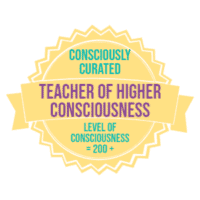 Michael A. Singer is a spiritual teacher and author who is known for his transformative teachings on consciousness and inner peace. His best-selling book, “The Untethered Soul,” has helped millions of people worldwide to find freedom and joy by breaking free from limiting thoughts and emotions. Singer’s approach to spirituality is grounded in practicality and accessibility, making his teachings accessible to people from all walks of life. He encourages individuals to explore their inner world and cultivate a deeper sense of self-awareness, mindfulness, and compassion. Overall, Michael A. Singer’s work inspires individuals to live more fulfilling, peaceful, and meaningful lives.
Michael A. Singer is a spiritual teacher and author who is known for his transformative teachings on consciousness and inner peace. His best-selling book, “The Untethered Soul,” has helped millions of people worldwide to find freedom and joy by breaking free from limiting thoughts and emotions. Singer’s approach to spirituality is grounded in practicality and accessibility, making his teachings accessible to people from all walks of life. He encourages individuals to explore their inner world and cultivate a deeper sense of self-awareness, mindfulness, and compassion. Overall, Michael A. Singer’s work inspires individuals to live more fulfilling, peaceful, and meaningful lives.
Michael Singer’s 8-Week Online Course continues to be a top-selling course at The Mind Body Spirit Network.
Sign #4 of a Workaholic Addiction: Difficulty Relaxing
Explanation of the difficulty in relaxing and enjoying leisure time
The fourth sign of workaholism is difficulty relaxing and enjoying leisure time. Workaholics often find it challenging to unwind or engage in leisure activities without feeling guilty or anxious about not working. They might struggle to keep their minds off work, making it hard to relax fully. This inability to relax can be particularly problematic as relaxation and leisure time are essential for rejuvenating the mind and body.
Discussion of the importance of relaxation for overall well-being
Ease plays a crucial role in maintaining our mental and physical well-being. It helps reduce stress, improve mood, boost energy levels,
More 170-Level Destructive Energies
Another symptom of a workaholic addiction and an example in the energy field of 170 is the energy of “sleeping but not resting.”
This energy is characterized by constant restlessness and unease, even during sleep. Workaholics may be unable to relax and rejuvenate, even when physically resting. This can lead to chronic fatigue, lack of focus, and decreased productivity.
Release the “energy” of not being able to relax and rest, and you start dismantling the workaholism energy fields.
Side Note: No surprise here, but the constant attention to the cell phone and work-related emails, texts, or missed calls is another sign of workaholic addiction.
About Craig Hamilton Co-Founder of EvolvingWisdom.com:

 Craig Hamilton is a spiritual trailblazer whose innovative transformation approach brings enlightenment down to earth and unlocks the codes to our highest human potential.
Craig Hamilton is a spiritual trailblazer whose innovative transformation approach brings enlightenment down to earth and unlocks the codes to our highest human potential.
With more than 16,000 graduates to date, his in-depth online meditation classes, workshops, and courses have transformed the lives of seekers in over 85 countries worldwide. These potent transformational how-to meditate training bring together core insights and approaches based on decades of on-the-ground research at the leading edge of spiritual practice and inquiry.
Symptom #5 of Workaholism: Neglecting Other Areas of Life
Explanation of neglecting other areas of life due to workaholism
Workaholics often prioritize work over other important areas of their life, such as relationships, hobbies, and self-care. They may neglect spending quality time with loved ones, pursuing personal interests, and taking care of their physical and emotional well-being. This neglect can lead to feelings of isolation, resentment, and a lack of fulfillment in life.
Discussion of the impact on overall happiness and fulfillment
Neglecting other areas of life for work can have a significant impact on overall happiness and fulfillment. Human beings have various needs, including social connection, personal growth, and self-care. When these needs are neglected, it can lead to feelings of emptiness, burnout, and dissatisfaction. Achieving a healthy work-life balance is essential for long-term happiness and well-being.
Conclusion of Symptoms of Workaholism and a Workaholics Addiction
Workaholism is a severe issue that can have detrimental effects on mental and physical health, as well as overall happiness and fulfillment. Recognizing the signs of workaholism, such as constant worry and stress, difficulty relaxing, and neglecting other areas of life, is crucial in order to address and manage this unhealthy behavior. By prioritizing self-care, setting boundaries, and seeking support, individuals can break free from workaholism and achieve a healthier work-life balance.”
Here’s a Recap of Those Signs & Symptoms:
- Inability to disconnect from work: Workaholics have difficulty setting boundaries between work and personal life, often finding it challenging to take breaks or vacations.
- Neglect of personal well-being: Workaholics prioritize work over their own health and well-being, neglecting self-care activities such as exercise, sleep, and relaxation.
- High levels of stress: Workaholics experience persistent and high levels of stress due to their constant preoccupation with work and the pressure they put on themselves to perform.
- Lack of work-life balance: Workaholics struggle to find a healthy balance between work and personal life, often sacrificing time with loved ones and leisure activities in favor of work-related tasks.
- Neglect of personal relationships: Workaholics prioritize work over spending time with loved ones, leading to strained relationships and feelings of isolation.
- Constant attention to cell phone interactions.
Discover Tools to Break Free from Destructive & Limiting Patterns
Life Visioning Mastery
Embark on a spiritual journey far beyond traditional goal setting & manifestation, and discover what the universe has in store for you with renowned spiritual teacher Dr. Michael Beckwith.
Bestselling author, spiritual teacher, proven to be of higher consciousness, and founder of Agape International Spiritual Center, Michael Bernard Beckwith, will help you move beyond the limits of visualization — to begin living as your vision.
 *According to ConsciousnessCalibrations.com, Dr. Michael Bernard Beckwith is a rare teacher of higher consciousness, aligned with the attractor fields of inspiration (390-395), celebration (390), and love (500+). Attractor fields in consciousness that are more than powerful enough to transform any area of your life. His teachings calibrate at 500 on the Map of Consciousness®, a rare and significant level of consciousness to expose yourself to.
*According to ConsciousnessCalibrations.com, Dr. Michael Bernard Beckwith is a rare teacher of higher consciousness, aligned with the attractor fields of inspiration (390-395), celebration (390), and love (500+). Attractor fields in consciousness that are more than powerful enough to transform any area of your life. His teachings calibrate at 500 on the Map of Consciousness®, a rare and significant level of consciousness to expose yourself to.
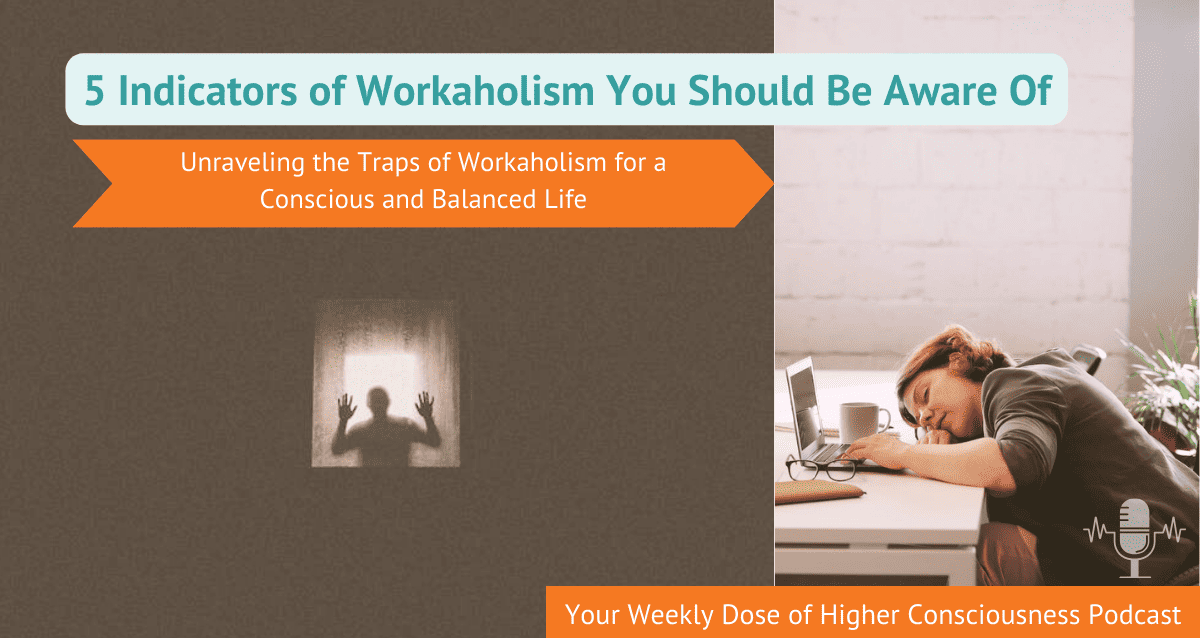













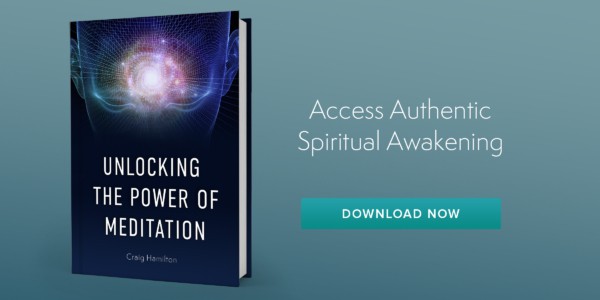


Leave a Reply